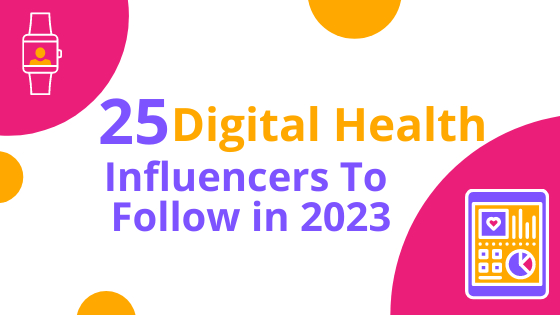With the new year just around the corner, we thought it would be interesting to look back at some of the biggest digital health news stories from 2023, like we did last year, when we published Top 10 Digital Health News in 2022.
Here are our picks for the top 10 digital health news:
Top 10 Digital Health News in 2023

The Impact of Nursing Informatics on Patient Care
Nursing informatics plays a crucial role in improving patient care by integrating nursing science with information science and technology. It facilitates the use of electronic health records and clinical decision support systems to enhance nursing practice and patient outcomes.
The positive impact of nursing informatics on patient care includes improved patient safety, enhanced communication between healthcare providers and patients, increased efficiency in workflow processes, improved decision-making through evidence-based recommendations, and enhanced patient education. Through the automation of tasks and access to important patient data, nursing informatics enables nurses to provide more personalized and effective care.
By increasing accessibility to healthcare services and bridging gaps in global obstetric care, virtual obstetrics care has the potential to revolutionize maternal healthcare. It offers benefits such as improved accessibility, reduced burden on patients and healthcare systems, personalized and continuous monitoring, and active patient engagement in decision-making. However, challenges exist in ensuring the safety and efficacy of these technologies, highlighting the need for robust regulations and guidelines.
The collaboration between healthcare providers, technology developers, regulatory bodies, and policymakers is crucial in navigating the evolving landscape of virtual obstetrics care and addressing challenges effectively. By working together, we can ensure that virtual obstetrics care continues to advance and provide safe, accessible, and high-quality care to expectant mothers worldwide.
Overall, nursing informatics and virtual obstetric care demonstrate the transformative potential of technology in healthcare. By leveraging these innovations, we can improve patient outcomes, bridge healthcare gaps, and provide personalized and efficient care to patients globally. The continued investment and collaboration in these areas hold immense promise for the future of healthcare delivery.
Read more here

5 Benefits of Remote Patient Monitoring for Improved Healthcare
The healthcare industry has witnessed a transformative shift with technological advancements, prominently exemplified by Remote Patient Monitoring (RPM). RPM, a form of telehealth, utilizes digital communication and wearable devices to remotely monitor patients’ health, offering real-time data for enhanced care coordination. This innovation addresses key challenges, fostering personalized and patient-centric healthcare.
RPM’s pivotal role includes breaking down geographical barriers, providing proactive healthcare management, empowering patients with real-time health insights, facilitating seamless care coordination, and reducing overall healthcare costs. By enabling remote access to medical attention, RPM proves particularly beneficial for those in rural or inaccessible areas. Its proactive monitoring allows early detection of health issues, minimizing complications and improving patient outcomes. Empowering patients to actively engage in their health decisions, RPM fosters informed lifestyle choices and medication adherence.
The cost-effectiveness of RPM stands out, reducing the need for hospital visits and preventing complications. As RPM integrates with other digital health solutions, its future promises improved patient outcomes, increased accessibility, and more cost-effective healthcare delivery. Embracing RPM as a cornerstone of healthcare strategies foretells a future characterized by better patient care, increased accessibility, and streamlined healthcare costs.
Read more here

5 Transformative Benefits of Artificial Intelligence in Healthcare
Andersen Labs explores the transformative benefits of Artificial Intelligence (AI) in healthcare, emphasizing collaboration between humans and machines. In an interview with Dr. Daniel Kraft, the question of whether AI will replace human doctors is reframed as a collaborative effort for optimal outcomes. Five key benefits of AI in healthcare are highlighted:
- Precision Diagnosis and Personalized Treatment: AI processes vast data, enabling precise disease diagnosis and personalized treatment plans tailored to an individual’s genetic makeup and health conditions.
- Enhanced Efficiency and Streamlined Workflows: AI automates tasks like administrative processes, appointment scheduling, and data entry, freeing up healthcare professionals for critical patient care. It optimizes resource allocation and streamlines supply chain management.
- Early Disease Detection and Prevention: Machine learning predicts disease risks by analyzing patient histories, genetic data, and environmental factors. AI-powered wearables monitor vital signs, enabling proactive interventions before symptoms appear.
- Advancements in Drug Discovery and Development: AI expedites drug discovery by identifying potential candidates, accelerating clinical trials, reducing costs, and making healthcare more accessible globally.
- Empowering Remote and Rural Healthcare: AI-driven telemedicine, diagnostics, and wearables bridge healthcare gaps in remote areas, providing consultations and accurate diagnoses from a distance. Mobile applications empower self-monitoring and chronic condition management.
However, integrating AI in healthcare poses challenges, including data privacy, ethical considerations, interoperability, regulatory compliance, skill gaps, and patient trust. Addressing these challenges requires collaboration among healthcare professionals, technologists, policymakers, and ethicists to harness AI’s potential responsibly.
The integration of AI in healthcare revolutionizes the entire ecosystem, offering personalized, efficient, and accessible healthcare. Collaboration ensures responsible AI development, addressing challenges and paving the way for a future where technology augments human capabilities for universally compassionate healthcare.
Read more here

The Rise of Digital Native Startups in the Healthcare Industry
The digital transformation in healthcare, led by digital-native startups, is reshaping the industry. Traditionally, startups emerged from established companies, but now, tech-savvy founders are revolutionizing healthcare. Digital health startups are rethinking healthcare delivery, from data collection to coordination, making it more patient-centered and data-driven.
Factors driving the growth of digital health startups include the falling cost of technology, the rise of the Internet and mobile technologies, and a realization that traditional healthcare approaches are often inefficient. These startups impact chronic disease management significantly, developing tools for patients to track symptoms, monitor progress, and adhere to treatment plans. This proactive approach reduces morbidity and mortality associated with chronic diseases.
Digitization in healthcare benefits patients with improved access through telemedicine and online scheduling. Providers benefit from increased efficiency through electronic medical records and other health information technology solutions. However, healthcare incumbents face challenges in adopting new technologies, including disruptive effects on traditional business models and the need for collaboration with startups. Collaboration can enhance access to quality care, merging traditional business practices with digital solutions.
The digitization of healthcare promises to revolutionize care delivery, offering direct access to medical records, scheduling, and prescription refills. Digital health solutions can improve population health by identifying trends in disease occurrence and treatment response. They also have the potential to increase access to care for underserved populations and improve continuity of care by providing real-time access to patient records. While digital-native startups are transforming healthcare, challenges and hurdles remain for widespread adoption of digitization.
Read more here

6 Digital Health Leaders talking about the Future of Healthcare
The future of healthcare is a dynamic landscape shaped by digital health leaders, and Healthcare Uncomplicated’s YouTube channel has been a platform for insightful discussions. Six digital health leaders have shared their perspectives on the future of healthcare, emphasizing key trends and technologies that will drive the industry forward.
The overarching themes from these digital health leaders include the shift towards personalized, patient-centered care enabled by digital health technologies. Wearables, AI, telemedicine, and blockchain are identified as transformative forces. The future involves holistic patient care, emphasizing overall well-being and community-based approaches for increased accessibility and reduced costs.
The Healthcare Uncomplicated YouTube channel has served as a valuable platform for these leaders to share their visions, fostering discussions on the future of healthcare. Their insights collectively contribute to the optimistic view that emerging technologies will create a more accessible, affordable, and patient-centered healthcare system. Special thanks were extended to Prof. Koen Kas, Matthew Holt, Dr. Beverly Malone, Susanne Baars, Howard Rosen, and Karl Hess for their inspiring contributions.
Read more here

5 Key Advantages of Technology in Mental Health Treatments
The integration of technology into mental health treatments marks a significant leap forward in patient care, addressing a crucial but often neglected aspect of overall wellbeing. This transformation is particularly impactful, given the enduring stigma and inadequate resources that have historically hindered individuals from seeking mental health treatment. However, with the emergence of technology, mental health professionals can now offer effective, accessible, and personalized treatment options irrespective of an individual’s location, social status, or financial standing.
Advantages of incorporating technology into mental health treatments are noteworthy. Firstly, it improves access to mental health services, especially for those in remote or underserved areas, through teletherapy. This remote provision of mental health services, via videoconferencing or phone, eliminates the need for physical visits, addressing challenges such as mobility issues or social anxiety. Additionally, technology increases patient engagement by providing tools, resources, and real-time support through mental health apps, fostering progress tracking and communication with healthcare providers.
Furthermore, the integration of technology allows for personalized mental health treatments. Virtual reality therapy and machine learning, for instance, enable tailoring treatments to individual needs, creating a more customized approach. This individualization is crucial in mental health care, where one-size-fits-all approaches may fall short. Technology also contributes to the reduction of stigma surrounding mental health issues, offering online support groups and forums where individuals can share experiences and seek support discreetly.
However, as with any transformative development, there are drawbacks to consider. The primary limitation lies in the potential lack of human interaction. While teletherapy and mental health apps provide support and resources, they cannot replicate the depth of human connection found in traditional, in-person therapy. This limitation can be particularly challenging for individuals grappling with loneliness or social isolation. Privacy concerns also emerge, as patients may hesitate to share sensitive information online, raising questions about data security and how collected data will be used.
Yet, despite these drawbacks, the rise of technology in mental health treatments is evident. Teletherapy, facilitated by video conferencing, phone calls, or messaging, has gained popularity due to its accessibility and convenience, especially beneficial for those with physical disabilities or residing in remote areas. Mobile applications have become a popular tool, providing affordable and accessible mental health support, including mood tracking and coping skills. Virtual reality, a technology that creates immersive environments, has found application in exposure therapy for conditions like anxiety disorders and post-traumatic stress disorder.
Artificial intelligence, another technological advancement, holds promise in transforming mental health treatment. By analyzing patient data, such as mood and behavior patterns, AI can provide tailored treatment plans and real-time monitoring, identifying potential risks like suicidal ideation. While these technological advancements show promise, it is crucial to emphasize that they should not replace traditional therapy. Instead, they should complement and enhance traditional methods, ensuring patients receive comprehensive and holistic care. The integration of technology into mental health treatments opens new avenues for accessibility and effectiveness, ushering in a more inclusive era of mental health care.
Read more here

5 Digital Health Voices Talking about Patient Care
This article explores insights from five digital health experts on the importance of patient-driven digital health and its impact on patient care. The experts emphasize the transformative role of digital health in empowering patients and reshaping the healthcare landscape.
- Grace Vinton: Advocates for including patients and caregivers in the innovation and development process, envisioning a future where patient experiences shape intelligent digital health solutions.
- Sergey Avdeychik: Recognizes the power of patient-driven digital health transformation, leading to increased personal engagement, self-management, and a more efficient healthcare experience for both patients and professionals.
- Gil Bashe: Highlights the revolutionizing impact of digital health on care, emphasizing the active role of consumers in health-access and decision-making conversations. Patient-centered digital health has the potential to transform the overall health experience.
- Catharina Borgenstierna: Discusses the shift towards patient-driven healthcare, where patients leverage technologies for active monitoring, leading to more personalized and proactive healthcare experiences. Challenges include equitable access and data privacy concerns.
- João Bocas: Focuses on the transformative force of digital health intelligence in patient empowerment, using AI and machine learning for disease prediction, personalized treatments, and improved health management.
The experts collectively stress the importance of patients as active participants in their healthcare journey, enabled by real-time data, personalized insights, and seamless connectivity. As the digital health revolution unfolds, they call for prioritizing equitable access, data privacy, and ethical considerations to ensure universal benefits. The integration of AI and machine learning is seen as a key element in enhancing disease prediction, personalized treatment, and overall health management, ushering in a new era of patient care in the digital age. The article invites further discussion on patient-driven digital health, its impact, and the challenges and opportunities it presents.
Read more here

Generative AI: Revolutionizing Healthcare with Cutting-Edge Innovations
Generative AI, a subset of Artificial Intelligence, is reshaping healthcare by revolutionizing patient care. It goes beyond automating tasks, now simulating drug interactions, predicting disease progression, and generating synthetic patient data. A key focus is on personalized treatment plans, where Generative AI utilizes diverse patient data for evidence-based decision-making. It identifies biomarkers, adapts treatment plans in real-time, tailors therapeutic interventions, and minimizes side effects, enhancing patient engagement.
In managing chronic diseases, Generative AI continually monitors health parameters, ensuring optimized treatment plans. Its role in precision medicine, analyzing vast data for personalized treatment strategies, is crucial. Financially, it is expected to contribute $1.4 trillion to healthcare by 2028, significantly impacting drug discovery, reducing development costs, and expediting time-to-market.
Generative AI’s future promises expanded personalized medicine, preventive healthcare, and innovative applications like AI-driven medical imaging and robotic surgery. With a projected compound annual growth rate of 40%, it is set to transform medical practice, offering a more precise, accessible, and patient-centric healthcare landscape. As healthcare professionals embrace these advancements, Generative AI stands as a game-changer, reshaping the industry and elevating patient care to unprecedented levels.
Read more here

25 Digital Health Influencers to Follow in 2023
The 25 Digital Health Influencers for 2023 present a diverse array of professionals shaping the digital health landscape. The list features:
- Ami B. Bhatt: Chief Innovation Officer, American College of Cardiology
- Ann Mond Johnson: CEO at American Telemedicine Association
- Brennan Spiegel: Director of Health Services Research, Cedars-Sinai Health
- Brian O’Connor: Chair at European Connected Health Alliance
- Cristian Cortés Fernández: CEO at Exponential Healthtech DAO
- Danielle Siarri: Clinical Advisor, Speaker, and HealthIT Advisor at Innonurse
- David Rhew, M.D.: Global Chief Medical Officer & VP of Healthcare, Microsoft
- Edward Marx: CEO at Divurgent
- Eugene Borukhovich: Co-Founder & COO at YourCoach Health
- Grace Vinton: Senior Healthcare Public Relations Director and Patient Advocate
- Hosna Salmani: PhD student in Health Information Management, Iran University of Medical Sciences
- Igor Korolev, DO, PhD: Physician/Neuroscientist
- Irma Rastegayeva: Co-Founder & Chief Digital Storyteller at eViRa Health
- Jan Beger: Senior Director Digital Ecosystem at GE HealthCare
- Jessica DaMassa: Health Innovation Reporter, Host & Executive Producer, WTF Health
- Jhonatan Bringas Dimitriades: Chief Executive Officer at Lapsi Health
- John Whyte: Chief Medical Officer at WebMD
- Joseph Kvedar: Professor of Dermatology, Harvard Medical School
- Julien de Salaberry: CEO & Founder at Galen Growth
- Maneesh Juneja: Digital Health Futurist
- Matthew Holt: Health care curmudgeon
- Peter Birch: CEO, Founder & Podcast Host at Talking HealthTech
- Ruby Gadelrab: CEO and Founder of MDisrupt
- Serrah Linares: Vice President, Partnerships at Change Healthcare
- Tjasa Zajc: Digital Health Expert and Host of Faces of Digital Health
This compilation provides a valuable resource for those seeking insights into the dynamic and evolving field of digital health.
Read more here

Digital Twin: A New Trend for Clinical Trials
Digital twins are revolutionizing clinical trials by providing a virtual simulation that closely mimics real-life conditions, enhancing the understanding of healthcare performance. These digital replicas, created by combining sensor data and computer models, offer numerous benefits in trial design, patient recruitment, and data collection and analysis. Key advantages include cost reduction, increased efficiency, and improved patient safety.
In clinical trial design, digital twins streamline processes by creating virtual models of trial sites and patients, enabling cost-effective site assessments and early identification of treatment issues. Patient recruitment and retention benefit from immersive experiences provided by digital twins, addressing concerns such as geographical limitations and time commitments. Data collection and analysis see improvements through the use of digital twins, ensuring accurate, efficient, and secure handling of patient information.
While digital twins hold promise for accelerating clinical trials, regulatory oversight is crucial to manage associated risks, particularly in terms of data privacy and security. Both the US FDA and the EMA provide guidance emphasizing the validation of digital health technologies and the implementation of safeguards to protect patient data. Despite concerns, the potential benefits of digital twins in overcoming industry challenges are significant, paving the way for a transformed clinical trial landscape.
Read more here
As we approach the new year, it’s always intriguing to reflect on the significant advancements and breakthroughs that have shaped the digital health landscape. Just as we did last year with our publication on the top digital health news stories of 2022, it’s time to delve into the highlights of 2023.
From transformative technologies to innovative solutions, this past year witnessed remarkable strides in the field of digital health that are propelling us towards a future characterized by improved healthcare outcomes and patient-centric care. As we bid farewell to 2023, let’s embrace the lessons and achievements it has brought, eagerly anticipating what lies ahead in the fast-evolving world of digital health.
Thank you for joining us on this journey through the latest in digital health. To stay in the know and explore further, here are some key links for you:
- Digital Salutem Website: Visit Digital Salutem for your weekly dose of digital health news and insights.
- Healthcare Uncomplicated on YouTube: Delve into the topics discussed in this article and more on our YouTube Channel, Healthcare Uncomplicated.
- Digital Salutem Podcast: Tune in to our thought-provoking discussions on the Digital Salutem Podcast. Uncover deeper insights into the world of healthcare transformation on Soundcloud and Spotify
- Share Your Thoughts: We value your feedback! Share your opinions on digital health, patient care, wearables, or anything, comment here or emailing us at info@digitalsalutem.com
- Connect with Us: For inquiries about Digital Healthcare Transformation, Healthcare organizational growth, or Healthcare brand positioning, reach out to us at +44 (0)1273 458590.
Your engagement fuels the ongoing dialogue shaping the future of healthcare. Let’s continue this transformative journey together!





